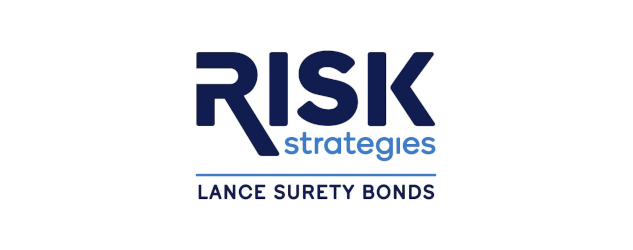What is Bonding Capacity?
For businesses operating in construction, government contracting, or other industries that require financial assurances, understanding bonding capacity is essential. It plays a crucial role in determining how much work a company can undertake while remaining eligible for surety-backed guarantees. In a competitive market, your bonding capacity can be the deciding factor between winning a lucrative project or losing out to a better-prepared competitor.
What is Bonding Capacity?
Bonding capacity refers to the maximum value of contracts a contractor or business can undertake while being backed by a surety bond. It acts as a financial cap that sureties are willing to support, based on their assessment of the business’s financial strength, credibility, and performance history.
In industries such as construction and infrastructure development, especially where public money is involved, bonding capacity is a sign of financial health and trustworthiness. Clients, particularly government bodies and large private sector firms, require contractors to be bonded to reduce the risk of project failure, delays, or financial mismanagement.
Types of Bonds Requiring Bonding Capacity
There are several types of surety bonds that rely on bonding capacity. The three most common are:
1. Bid Bonds
Bid bonds are submitted with project tenders to guarantee that the contractor can fulfil the contract terms at the bid price. They protect project owners from non-serious bids and help filter out under qualified contractors.
2. Performance Bonds
Performance bonds guarantee that a contractor will complete a project according to agreed-upon terms. If the contractor defaults, the surety steps in to complete the work or compensate the project owner.
3. Payment Bonds
Payment bonds ensure that subcontractors, suppliers, and labourers are paid promptly. This protects stakeholders and reduces the risk of project disputes.
Each of these surety bonds contributes to safeguarding a project by reducing the financial risk to the client and ensuring the contractor is reliable, capable, and accountable.
Why Bonding Capacity Matters for Businesses
Bonding capacity has a direct impact on a company’s ability to compete for, win, and successfully deliver contracts. Here's why it matters:
- Project Eligibility: Many tenders, especially government contracts, require bonding as a precondition. Without it, businesses may be excluded from lucrative opportunities.
- Credibility and Reputation: A healthy bonding capacity signals to clients and partners that your business is financially stable and professionally managed.
- Risk Management: Surety-backed businesses must adhere to financial and operational best practices, reducing the risk of failure or delay.
- Regulatory Compliance: Certain sectors mandate surety bonds to comply with legal and contractual requirements.
Factors Determining Bonding Capacity
Bonding capacity isn’t arbitrary, it’s calculated based on several key business and financial indicators:
- Financial Strength: Net worth, profitability, and liquidity all play a part.
- Working Capital: Having sufficient liquid assets to manage ongoing obligations boosts confidence.
- Credit History: A strong credit profile is essential, as it reflects trustworthiness and repayment capacity.
- Project History: Past performance on similar contracts, completion rates, and dispute records influence future bonding.
- Organisational Structure: A company with experienced leadership and a clear operational strategy is more likely to earn a higher bonding capacity.
- Debt Management: High levels of unmanaged debt can negatively affect bonding capacity.
Understanding these factors helps when requesting a surety bond quote or when working to increase your bonding limits.
Single vs. Aggregate Bonding Capacity
Bonding capacity is typically expressed in two figures:
- Single Limit: The maximum bond value a contractor can obtain for one project.
Example: If your single limit is $1 million, you cannot be bonded for a single contract exceeding that value. - Aggregate Limit: The total value of all active bonded projects a contractor can have at one time.
Example: If your aggregate limit is $3 million, you could be bonded for three projects worth $1 million each or a mix totalling up to that amount.
Understanding both limits is essential for managing workflow and project pipelines strategically.
How Is Bonding Capacity Determined?
Sureties assess bonding capacity through a structured process designed to evaluate both financial and operational risks. Here’s a typical step-by-step overview:
- Initial Consultation and Application
The contractor submits a detailed profile, including company history, project experience, and requested bond types. - Review of Financial Statements
Sureties examine audited financials, balance sheets, income statements, and cash flow reports, typically from the last three years. - Credit Checks
Both business and personal credit scores are evaluated to assess financial reliability. - Project History Analysis
Sureties look at completed projects, delays, disputes, or claims. - Business Continuity Plan
Companies with succession plans and contingency measures are viewed as lower-risk. - Evaluation of Key Personnel
Experienced, qualified leadership with industry knowledge contributes positively to the bonding assessment.
This thorough review allows sureties to provide an accurate surety bond quote and set suitable bonding limits.
Get a FREE Surety Bond Quote in Minutes
- Fast and Secure Application
- Money Back Guarantee
- Approval in Minutes
- Nationwide Coverage
How to Increase Bonding Capacity
If your current bonding capacity is limiting your business potential, there are effective strategies to increase it:
- Strengthen Your Financials
Improve your working capital, reduce debts, and reinvest profits wisely. - Build a Strong Relationship with Your Surety
Transparency and proactive communication with your surety can lead to greater flexibility and confidence. - Deliver Projects Successfully
Completing contracts on time, within budget, and without disputes builds trust and enhances your performance record. - Maintain Clean Records
Avoid legal disputes, tax issues, or unresolved claims—all of which could negatively affect your bonding assessments. - Hire or Train Key Personnel
Ensure that your team includes skilled professionals with proven track records in project delivery and risk management. - Plan for Growth
Developing strategic goals and preparing detailed forecasts shows your business is ready for larger projects.
These measures not only help you secure a higher bonding capacity but can also reduce your overall surety bond cost in the long run.
The Role of Bonding Capacity in Business Growth
A high bonding capacity is often the key to taking your business to the next level. It lets you bid on larger contracts, which usually means higher revenue and the chance to build long-term partnerships. It also helps you win better clients, public sector agencies and major corporations tend to prefer contractors who are well-bonded.
With a higher bonding limit, you can expand into new markets or industries that were previously out of reach. Plus, in a competitive landscape, strong bonding capacity sets you apart by showing reliability, professionalism, and readiness to scale.
Over time, maintaining a solid bonding profile can even reduce your surety bond costs, as your improved risk profile gives sureties greater confidence in your business.
Key Takeaways on Bonding Capacity
- Bonding capacity is the maximum value of work a business can take on while backed by a surety bond.
- It’s essential for qualifying for large-scale projects, particularly in construction and government contracting.
- There are different types of bonds that require bonding capacity, such as bid, performance, and payment bonds.
- Financial health, project history, credit score, and operational structure all influence your bonding capacity.
- Single vs. aggregate bonding capacity refer to limits on individual projects and the total value of ongoing work.
- Sureties determine bonding capacity through a rigorous assessment process.
- To grow your bonding capacity, focus on improving your financials, project performance, and strategic planning.
- Higher bonding capacity supports business expansion, credibility, and access to premium clients and projects.
Understanding and optimising your bonding capacity can help to increase opportunity, trust, and long-term business success. Whether you're applying for your first surety bond quote or looking to boost your existing limits, managing this aspect of your business can unlock new pathways to growth and profitability.
Sources
Lance Surety Bonds. (n.d.-a). What is a surety bond?
https://www.lancesuretybonds.com/learn/what-is-a-surety-bond
Lance Surety Bonds. (n.d.-b). Surety bond quote.
https://www.lancesuretybonds.com/surety-bond-quote
Lance Surety Bonds. (n.d.-c). Surety bond cost.
https://www.lancesuretybonds.com/learn/surety-bond-cost
Statista. (n.d.). Construction industry in the U.S. - statistics & facts.
https://www.statista.com/topics/974/construction/
USA.gov. (n.d.-a). Agency index.
https://www.usa.gov/agency-index
National Association of Surety Bond Producers (NASBP). (n.d.). Form SF24 bid bond.
https://www.nasbp.org/resource/form-sf24-bid-bond/
Investopedia. (n.d.). Performance bond.
https://www.investopedia.com/terms/p/performancebond.asp
Harvard Business School Online. (n.d.). Risk management.
https://online.hbs.edu/blog/post/risk-management
USA.gov. (n.d.-b). Credit reports.
https://www.usa.gov/credit-reports
USA.gov. (n.d.-c). Credit.
https://www.usa.gov/credit
APA Services. (n.d.). Income statement.
https://www.apaservices.org/practice/business/finances/income-statement
Harvard Business Review. (2016, December). Succession planning: What the research says.
https://hbr.org/2016/12/succession-planning-what-the-research-says
Get a FREE Surety Bond Quote in Minutes
- Fast and Secure Application
- Money Back Guarantee
- Approval in Minutes
- Nationwide Coverage
- Fast and Secure Application
- Nationwide Coverage
- Approval in Minutes
- Money Back Guarantee
- Image

- Image

- Image

Lance Surety Bond Associates, Inc. is a surety bond agency based out of southeastern Pennsylvania that is able to write all surety bond types in all 50 states. We are dedicated to servicing all of our customers' surety bonding needs throughout the country and guarantee competitive rates, timely responses, and unparalleled customer service.






